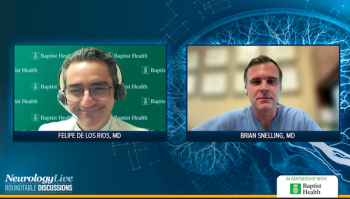
The conversation centers around the pursuit of effective neuroprotective agents in stroke, the challenges of clinical trial design, and what could make future therapies succeed. [WATCH TIME: 5 minutes]

The conversation centers around the pursuit of effective neuroprotective agents in stroke, the challenges of clinical trial design, and what could make future therapies succeed. [WATCH TIME: 5 minutes]
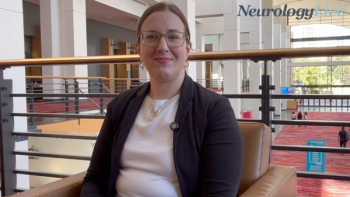
At CNS 2025, the program director of child neurology residency at Boston Children's Hospital discussed strategies to expose medical students to child neurology early in their clinical training. [WATCH TIME: 4 minutes]

In episode 2, a pair of stroke neurologists explore how artificial intelligence is accelerating stroke detection, streamlining workflows, and redefining collaboration in modern stroke care. [WATCH TIME: 4 minutes]
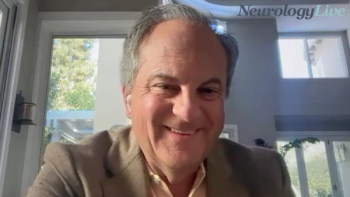
The president and founder of the Stuttering Treatment and Research Society highlighted the significance of interdisciplinary care for both children and adults with stuttering. [WATCH TIME: 5 minutes]

In this kickoff episode, Drs. Brian Snelling, MD, and Felipe De Los Rios, MD, discussed how evolving evidence continues to expand mechanical thrombectomy eligibility, from extended time windows to large-core and medium-vessel occlusions. [WATCH TIME: 6 minutes]
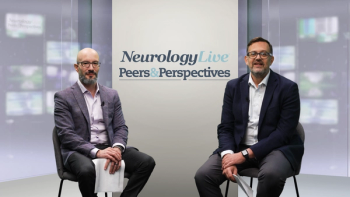
Experts emphasize that long-term monitoring after stepping down from high-efficacy multiple sclerosis (MS) therapies requires individualized clinical, MRI, and laboratory assessments to promptly detect disease activity or complications, alongside clear patient communication about goals and risks; looking forward, novel treatments and improved biomarkers promise to enhance personalized, safer management strategies.

Experts discuss the ongoing phase 4 COAST trial evaluating ozanimod as a step-down therapy for patients with stable multiple sclerosis (MS) on anti-CD20 treatments, highlighting careful patient selection, timing of initiation to balance disease control with immunosuppression risks, and the need for individualized decisions pending trial results.

Experts discuss how de-escalation in multiple sclerosis (MS) balances maintaining disease control with reducing treatment burden by transitioning from fumarates to options such as cladribine or emerging Bruton tyrosine kinase (BTK) inhibitors, aiming for safer, more personalized long-term care.

The codirector of interventional neuroradiology at Baptist Health's Neuroscience Institute, outlined a pragmatic, anatomy-first approach to aneurysm care, balancing endovascular options against open surgery and ways to tailor decision-making. [WATCH TIME: 3 minutes]

The associate professor of neurology at the Icahn School of Medicine at Mount Sinai talked about the major biomarkers used to track progression in Huntington disease. [WATCH TIME: 5 minutes]

The executive vice president and head of R&D at Lundbeck provided more context on the scientific rationale of amlenetug, an investigational monoclonal antibody designed to halt the spread of alpha-synuclein aggregates in multiple system atrophy. [WATCH TIME: 3 minutes]
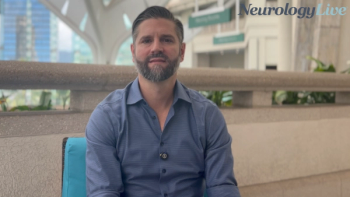
At MDS 2025, the senior medical director of UCB's Translational Medicine Neuroscience and Gene Therapy presented data from the ATLANTIS study of glovadalen in patients with Parkinson disease. [WATCH TIME: 4 minutes]
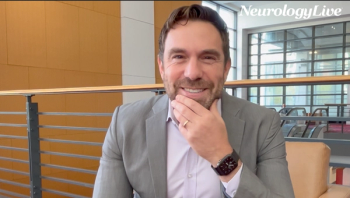
The associate professor of neurology and pediatrics at the University of California, San Francisco, discussed updated recommendations for continuous EEG use in neonates, highlighting risk stratification, and the growing importance of family involvement. [WATCH TIME: 3 minutes]
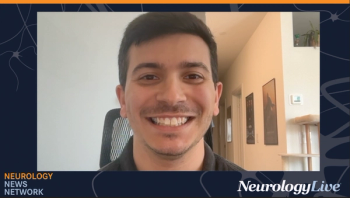
Neurology News Network. for the week ending October 18, 2025. [WATCH TIME: 4 minutes]

The professor of neurology at Barts and The London School of Medicine and Dentistry provided commentary on the ways to improve inclusion for multiple sclerosis clinical trials, factoring in patients with more advanced stages of disease. [WATCH TIME: 4 minutes]

Panelists discuss how inebilizumab in the MINT trial demonstrated efficacy in both acetylcholine receptor (AChR)– and MuSK antibody–positive patients with 6-month dosing intervals, successful steroid tapering during treatment, and the potential for upstream B-cell targeting to provide durable disease control.

The assistant professor of neurology at Oregon Health & Science University discussed emerging evidence that aerobic exercise may enhance remyelination in patients with multiple sclerosis. [WATCH TIME: 5 minutes]

Panelists discuss how the primary unmet needs include better treatments for seronegative and ocular-only patients, achieving minimal symptom expression in more than the current 45% to 50% of patients, and developing therapeutic biomarkers to guide personalized treatment selection.

The pediatrician in chief at Johns Hopkins Children’s Center outlined the logistical, ethical, and regulatory hurdles of conducting pediatric MS trials, emphasizing the need for faster, more inclusive study designs to bring emerging therapies to clinic. [WATCH TIME: 5 minutes]
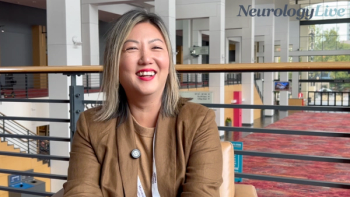
At CNS 2025, the child neurologist at Rady Children's Hospital-San Diego talked about the expanding role of genetics for diagnosis and treatment in pediatric neurology. [WATCH TIME: 5 minutes]

The professor of neurology at Barts and London School of Medicine and Dentistry discussed data from the phase 3b ORATORIO-HAND trial, which tested ocrelizumab’s effect in patients with more advanced primary progressive multiple sclerosis. [WATCH TIME: 5 minutes]

Experts discuss extended interval dosing (EID) of anti-CD20 therapies in multiple sclerosis (MS) as a promising strategy to maintain disease control while potentially reducing immunosuppression-related risks, highlighting early positive clinical experiences and the importance of careful patient selection and ongoing monitoring.

Experts discuss the rationale and patient-specific considerations for de-escalating therapy in multiple sclerosis (MS), particularly for those on anti-CD20 treatments, emphasizing the balance between maintaining disease stability and minimizing long-term risks such as infections and treatment burden through tailored adjustments based on clinical, radiological, and individual factors.

The pediatrician in chief at Johns Hopkins Children’s Center provided clinical insights on new findings demonstrating ocrelizumab’s potential in treating pediatric multiple sclerosis. [WATCH TIME: 4 minutes]
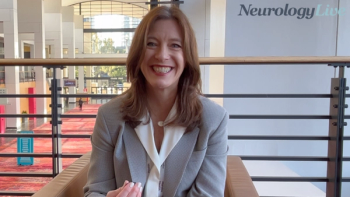
The pediatrician-in-chief at Johns Hopkins Children’s Center shared her reaction to receiving this year’s Bernard Sachs Award in recognition of her contributions to child neurology. [WATCH TIME: 5 minutes]

In this final segment, Perry reflects on how zorevunersen represents a shift toward disease-modifying therapies in epilepsy and what this means for the future of genetic epilepsies. [WATCH TIME: 2 minutes]

Neurology News Network. for the week ending October 11, 2025. [WATCH TIME: 4 minutes]

In this fourth segment, Scott Perry, MD, outlines the design of the registrational EMPEROR trial and what it aims to confirm about zorevunersen’s long-term safety and clinical benefit. [WATCH TIME: 2 minutes]
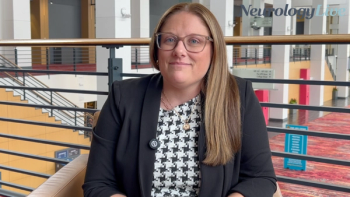
At CNS 2025, the executive director at the Child Neurology Foundation presented on the importance of collaboration among clinicians and advocacy groups to connect families with care support services. [WATCH TIME: 4 minutes]

In this segment, epileptologist Scott Perry, MD, discusses zorevunersen’s effects on Vineland-3 scores and why improvements in communication, cognition, and adaptive behavior matter in Dravet syndrome. [WATCH TIME: 3 minutes]